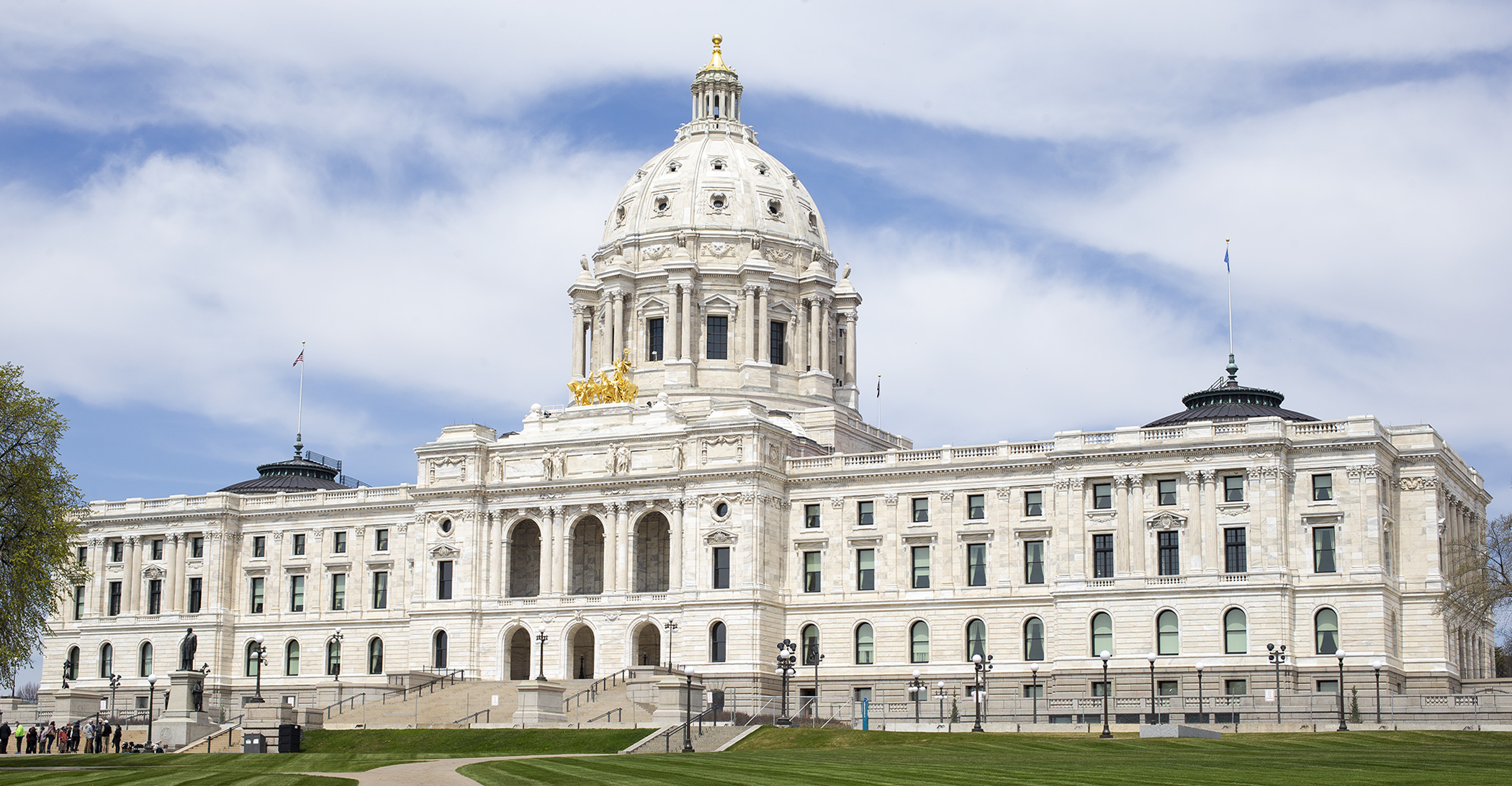Tax bills bear big differences on the bottom line

While all other conference committees discuss spending, the taxes conference committee deals with the revenue side of the ledger.
On Monday, discussions began on the differences between the omnibus tax bills passed by the House and Senate. While the two bodies’ contrasting tax philosophies have been articulated all session, Monday’s meeting offered the opportunity to compare costs of making them law.
In a nutshell, the DFL-led House has put forth proposals to generate more revenue in an effort to help Minnesotans hurt by the pandemic and bring more “fairness” to the state’s tax code, while the Republican-led Senate has maintained that there be no tax increases on state residents.
Whether the bills that passed in each chamber achieve those goals is a matter of debate, but HF991/SF961* was given a walk-through and comparison in the conference committee. And the first number that may jump out from the balance sheet is the House tax bill would add an estimated $4,000 — yes, $4,000 — to the state’s General Fund for the 2022-23 biennium, while the Senate version would reduce it by $548 million.
The difference is the sum of several different policies. For example, the Senate bill would create a subtraction for all forgiven federal Paycheck Protection Program loans, while the House bill would cap the subtraction at $350,000. The Senate’s PPP proposal would reduce state revenues by $409.1 million in the next biennium, the House proposal by $240.6 million.
But there are a number of other federal tax changes that have been made since late 2019, and the House bill conforms with most of them, while the Senate bill does not. Hence, when it comes to conformity, the House bill would reduce revenue by $378.1 million for the next biennium to the Senate version’s $409.1 million.
Changes for individuals
In addition to PPP loan subtraction, another much-debated idea is the House addition of a fifth income-tax tier of 11.15% for married joint filers earning $1 million or more, $500,000 or more for individuals. It’s estimated that would raise $563.6 million in the 2022-23 biennium.
The House bill would also create a subtraction for unemployment benefits up to $10,200 (costing the state $234.8 million), while the Senate bill would create a subtraction for 18% of federal pandemic-related unemployment benefits, reducing revenues by only $28.4 million.
Among other individual income tax provisions in the House bill that have no accompanying Senate language are several changes to the working family tax credit that add up to an estimated $59.1 million. The House bill also includes a film production tax credit that would cost $20 million.
Both bills would extend the angel investor tax credit at an annual cost of $10 million.
Changes for businesses
Here’s a big difference between the bills: Provisions related to corporate franchise taxes would result in a gain of $298.5 million in the House bill and a loss of $205.4 million in the Senate bill. Conforming to changes in federal tax policy account for the bulk of the Senate’s total, while the House estimates a gain of $399.5 million from additions related to global intangible low-taxed income, foreign controlled corporations and a worldwide option.
Both bills would increase the market value exclusion on commercial and industrial property from $100,000 to $150,000, which would lower state revenues by an estimated $30.7 million.
The House bill contains language that would dedicate $30 million of cigarette tax revenue to tobacco use prevention and cessation projects in the next biennium. The Senate allocates $5 million for that purpose.
Aids and credits
Another significant difference is in the area of property tax aids, credits and refunds.
The House would return $184.5 million to taxpayers in the next biennium, while the Senate total would come to $20.2 million. The House bill contains $94.6 million in county relief grants for local businesses and nonprofits, $30 million for a housing development fund and a workforce and affordable homeownership account, and $25 million for local homelessness prevention aid to counties.
Meanwhile, the largest tax credit in the Senate bill would establish an in-home child care provider credit at 50% of net property taxes. It’s estimated that taxpayers would receive $10.3 million in the next biennium as a result of that credit.
The House bill contains sales tax exemptions for materials used in the construction of 15 local public safety facilities in the state that don’t appear in the Senate bill. But the two bills concur on 15 local-option sales tax provisions and five projects funded by tax increment financing.
As for policy, several changes in the House bill are related to allowing those who don’t have a Social Security number to use an individual taxpayer identification number, thus making those taxpayers eligible for such things as the working family credit.
And the Senate bill would establish a housing tax credit contribution fund, while the House bill would launch a tax expenditure review commission to evaluate the state’s tax expenditures, their effectiveness and their fiscal impact.
Conferees plan to complete the comparison of the two bills Tuesday.
Related Articles
Search Session Daily
Advanced Search OptionsPriority Dailies
Speaker Emerita Melissa Hortman, husband killed in attack
By HPIS Staff House Speaker Emerita Melissa Hortman (DFL-Brooklyn Park) and her husband, Mark, were fatally shot in their home early Saturday morning.
Gov. Tim Walz announced the news dur...
House Speaker Emerita Melissa Hortman (DFL-Brooklyn Park) and her husband, Mark, were fatally shot in their home early Saturday morning.
Gov. Tim Walz announced the news dur...
Lawmakers deliver budget bills to governor's desk in one-day special session
By Mike Cook About that talk of needing all 21 hours left in a legislative day to complete a special session?
House members were more than up to the challenge Monday. Beginning at 10 a.m...
About that talk of needing all 21 hours left in a legislative day to complete a special session?
House members were more than up to the challenge Monday. Beginning at 10 a.m...